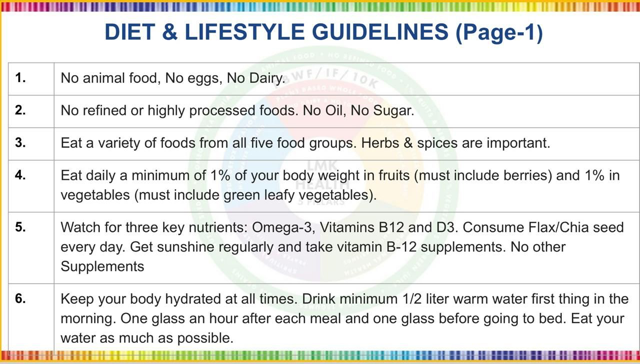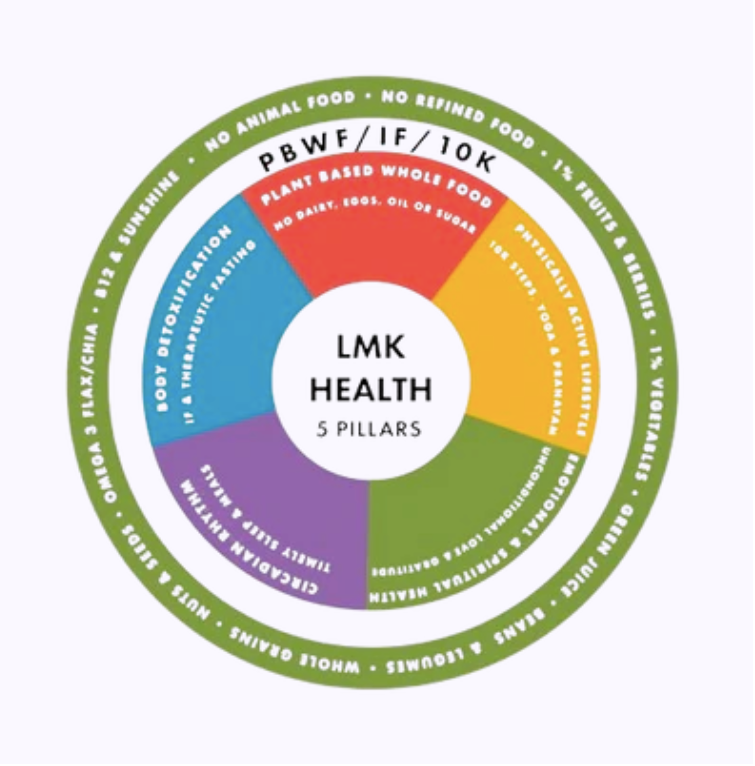This blog started on January 1 of this year, and over the past 40 weeks, we have learned that all lifestyle diseases are caused by poor diet and lifestyle choices. Taking medications for these diseases only suppresses the symptoms without addressing the root causes, which is why they are often prescribed for life. To reverse these diseases, one simply needs to correct their diet and lifestyle. However, the challenge lies in how to make these changes.
With the flood of conflicting information on social media, it can be difficult to discern what is right and what is wrong. Many vested interests, like the food industry, fund research to present their products positively. When these foods make us sick, healthcare providers direct us to tests and treatments, leading to lifelong medication use. Big Pharma continues to develop drugs that suppress symptoms, providing only a false sense of relief.
Over the past 40 weeks, we have identified five key factors that influence our health, which I refer to as the five pillars of health. By incorporating these into our lives, the body begins to heal, and as it heals, we can gradually eliminate the need for lifestyle medications. These five pillars are:
- Food
- Detoxification
- Circadian Rhythm
- Physical Activity
- Emotional & Spiritual Health
My experience with over 200,000 people who have completed my two-month WhatsApp course shows that addressing all five pillars of health in a holistic manner allows the body to heal, reversing most, if not all, lifestyle diseases and helping people wean off chronic medications. The lessons we’ve learned so far are summarized in the 12-point diet and lifestyle guidelines listed below:

Five Food Groups
It’s essential to consume food from all five plant-based food groups:
- Fruits
- Vegetables
- Beans & Legumes
- Grains
- Nuts & Seeds
Additionally, incorporating plenty of herbs and spices is crucial as they are the richest source of antioxidants.
Uncooked foods
It’s important to consume at least half of your total calories from uncooked food. Uncooked food provides healthy bacteria for our gut and protects the integrity of our gut lining.
Variety in foods
It’s not enough to eat plant-based whole foods and 50% uncooked food; you also need variety. I recommend consuming at least seven different varieties from each of the five food groups every week.
Allowed exceptions
There are certain exceptions allowed from the PBWF (Plant-Based Whole Food) guidelines. These exceptions depend on your health status, as determined by five metabolic markers:
1. Waist (abdomen) size greater than half of one’s height.
2. Blood pressure over 130/85.
3. Triglycerides over 150.
4. HDL cholesterol under 40.
5. Fasting glucose over 100.
If someone has three or more of these conditions, they are considered to have Metabolic Syndrome. If none are present, the person is generally in good health. The exceptions allowed are based on one’s age and health status, as determined by these five metabolic markers. Here are the allowances for oil/ghee and sugar:
1.If you are suffering from one or more chronic diseases: No exceptions are allowed.
2.If you have recently reversed all your chronic diseases: 2 teaspoons of oil/ghee and two teaspoons of sugar are allowed.
3. If you have reversed chronic diseases and have been off medications for at least two years: 3 teaspoons of oil/ghee and 3 teaspoons of sugar are allowed.
4. If you have never had chronic diseases but have two metabolic syndrome markers: 3 teaspoons of oil/ghee and 3 teaspoons of sugar are allowed.
5. If you have never had chronic diseases but have one metabolic marker: 4 teaspoons of oil/ghee and 4 teaspoons of sugar are allowed.
6. If you are over age 40 and have never had chronic diseases or metabolic markers: 5 teaspoons of oil/ghee and 5 teaspoons of sugar are allowed.
7. If you are under age 30 and have never had chronic diseases or metabolic markers: 6 teaspoons of oil/ghee and 6 teaspoons of sugar are allowed.
Another way to understand this is that the total calories from noncompliant foods should be less than following:
Case-1 = 0%
Case-2 = 5%
Case-3 = 7.5%
Case-4 = 7.5%
Case-5 = 10%
Case-6 = 12.5%
Case-7 = 15%
These restrictions apply to food, not necessarily to condiments used in small quantities. For example, adding a teaspoon of sugar to a chutney shared among five people is acceptable.
Slippery slopes
When people join my health groups and read my post on the 12 daily guidelines, they often bring their own biases. This leads to varying experiences, from extreme benefits like losing 15 pounds and stopping 7-8 medications in two months, to more modest results like losing 4-5 pounds and halving their medication dosages reduced. Everyone stabilizes at a certain level, depending on their diet and lifestyle. It’s not just about what you eat but also how often you eat out, party, and make exceptions.
The instructions are clear—no ghee/oil and no sugar if you want to reverse diseases, and two teaspoons maximum if you want to maintain health. Many diseased individuals mistakenly continue using them. Analyze your diet and lifestyle to identify shortfalls responsible for not achieving the desired health markers. Common areas where people fall short include:
1. Not consuming enough green leafy vegetables.
2. Not eating enough fruits and berries.
3. Cheating with dairy milk, yogurt, oil/ghee, and sugar.
4. Skipping biweekly 36-40 hour Ekadashi fasts.
5. Not doing prolonged fasts, such as two 5-day fasts or one 10-day Navratri-style fast with only one meal of fruits a day.
It’s understandable to make exceptions on weekends, but these should be offset by a 24-hour fast on Mondays.
Cheat days
A common question is about cheat days. When meeting friends and family, business acquaintances, or attending weddings and parties, you may find that the food is not PBWF compliant or that the eating window cannot be maintained. Here’s how to handle such situations:
1. Physical activity: It’s okay to maintain a weekly average of 70,000 steps. If you fall short one day, make up for it the next.
2. Eating window: If your eating window is longer on a particular day, narrow it on the adjacent day to keep the weekly average at 8 hours or less.
3. PBWF compliance: If you exceed your daily allowance of oil and sugar, compensate by reducing intake on adjacent days.
4. Medications: If you’re on medications and don’t have a daily allowance, consider an additional water fast beyond your biweekly fast.
5. Buffet meals: Most buffets offer safe options like salads, lentils, rice, and bread. Choose wisely.
6. Social groups: Your dietary restrictions may influence your social circle. You may find others following your example or preparing compliant dishes for you. If not, it may be time to find new friends.
7. Pre-event eating: If you know a social event will have unhealthy food, consider eating before attending.
8. Post-cheat compensation: If you eat something unhealthy, compensate with a 24-hour water fast the next day.
9. Fasting as a tool: Remember, water fasting and dry fasting are powerful tools. Use them when you face a cheat day.
Politics of health
Starting next week, we will explore a topic I call “Politics of Health.” We’ll examine how different industries—such as Food, Pharma, Healthcare, Media, and Government—often work together in ways that may not be in the best interest of the public.



Share and get 15% off!
Simply share this product on one of the following social networks and you will unlock 15% off!